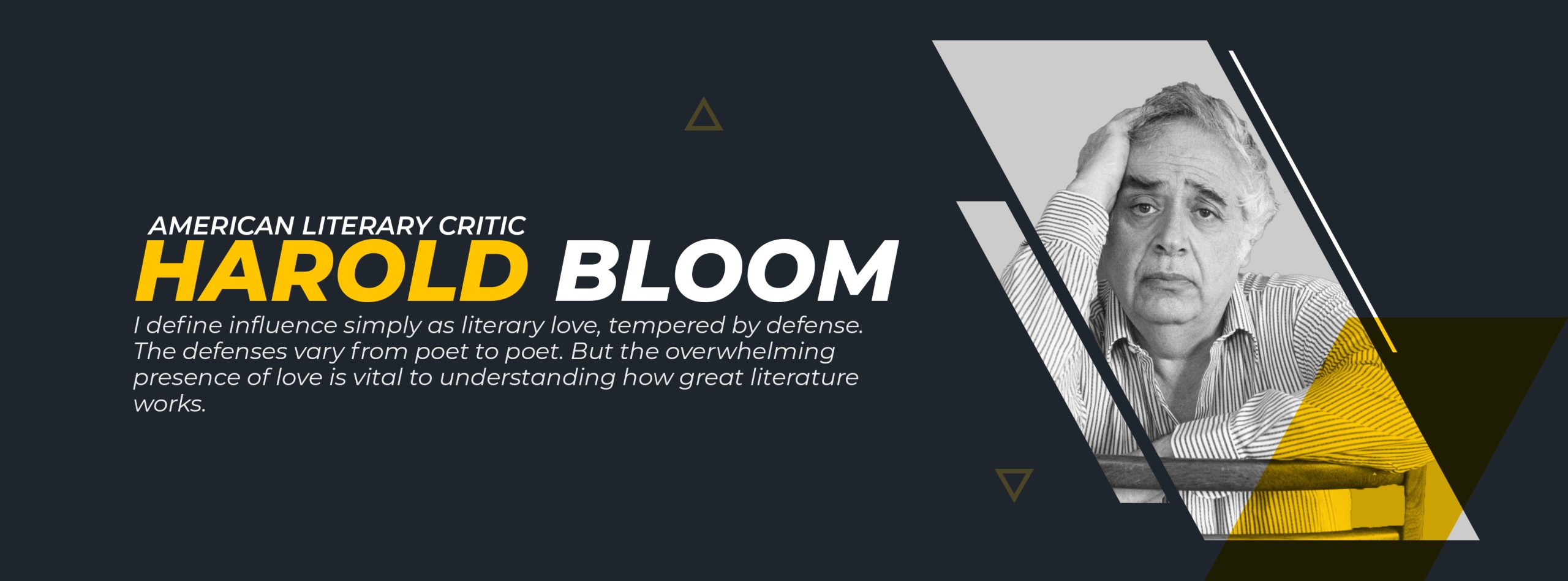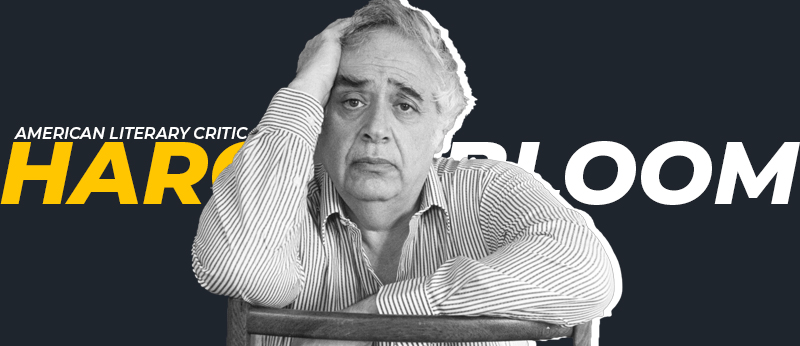Top 10 most inspiring quotes by Harold Bloom
- We read to find ourselves, more fully and more strangely than otherwise we could hope to find.
- I am not unique in my elegiac sadness at watching reading die, in the era that celebrates Stephen King and J.K. Rowling rather than Charles Dickens and Lewis Carroll.
- We read frequently if unknowingly, in quest of a mind more original than our own.
- We all fear loneliness, madness, dying. Shakespeare and Walt Whitman, Leopardi and Hart Crane will not cure those fears. And yet these poets bring us fire and light.
- It is hard to go on living without some hope of encountering the extraordinary.
- I am naive enough to read incessantly because I cannot, on my own, get to know enough people profoundly enough.
- Read deeply, not to believe, not to accept, not to contradict, but to learn to share in that one nature that writes and reads.
- What matters in literature in the end is surely the idiosyncratic, the individual, the flavor or the color of a particular human suffering.
- Aesthetic criticism returns us to the autonomy of imaginative literature and the sovereignty of the solitary soul, the reader not as a person in society but as the deep self, our ultimate inwardness.
- I define influence simply as literary love, tempered by defense. The defenses vary from poet to poet. But the overwhelming presence of love is vital to understanding how great literature works.

Harold Bloom (1930-2019) was a prominent American literary critic and scholar known for his vast knowledge and controversial theories about literature. Born on July 11, 1930, in New York City, Bloom grew up in a Jewish family and developed a deep love for reading and learning from a young age.
Bloom obtained his education at Cornell University, where he earned his Bachelor’s degree in 1951. He later pursued his doctoral studies at Yale University, completing his Ph.D. in 1955. He then embarked on an illustrious academic career, teaching at various prestigious institutions including Yale University, New York University, and Bard College.
Bloom became widely recognized for his seminal work, “The Anxiety of Influence” (1973), in which he developed his theory of literary creation and the complex relationship between poets and their predecessors. He argued that poets often struggle with the influence of past writers, seeking to overcome it and establish their own unique voice.
Throughout his career, Bloom authored numerous books and essays, covering a vast range of literary figures and movements. Some of his notable works include “The Western Canon: The Books and School of the Ages” (1994) and “Shakespeare: The Invention of the Human” (1998), where he championed the importance of literary canons and celebrated Shakespeare as the most influential figure in Western literature.
Bloom’s scholarship was characterized by his deep reverence for the power of literature and his belief in the enduring value of great works. He was known for his spirited and often contentious debates with other critics and scholars, making him a central figure in contemporary literary criticism.
Harold Bloom’s contributions to the field of literary criticism left a lasting impact on both scholars and readers alike. His thought-provoking ideas and passionate engagement with literature continue to shape the way we understand and appreciate the written word. Harold Bloom passed away on October 14, 2019, leaving behind a rich legacy in the world of literary scholarship.
👉Listen to the best music from all over the world at www.liveonlineradio.net #Harold_Bloom #quotes #FM #Online_radio #radio #live_online_radio #live #world_radio





